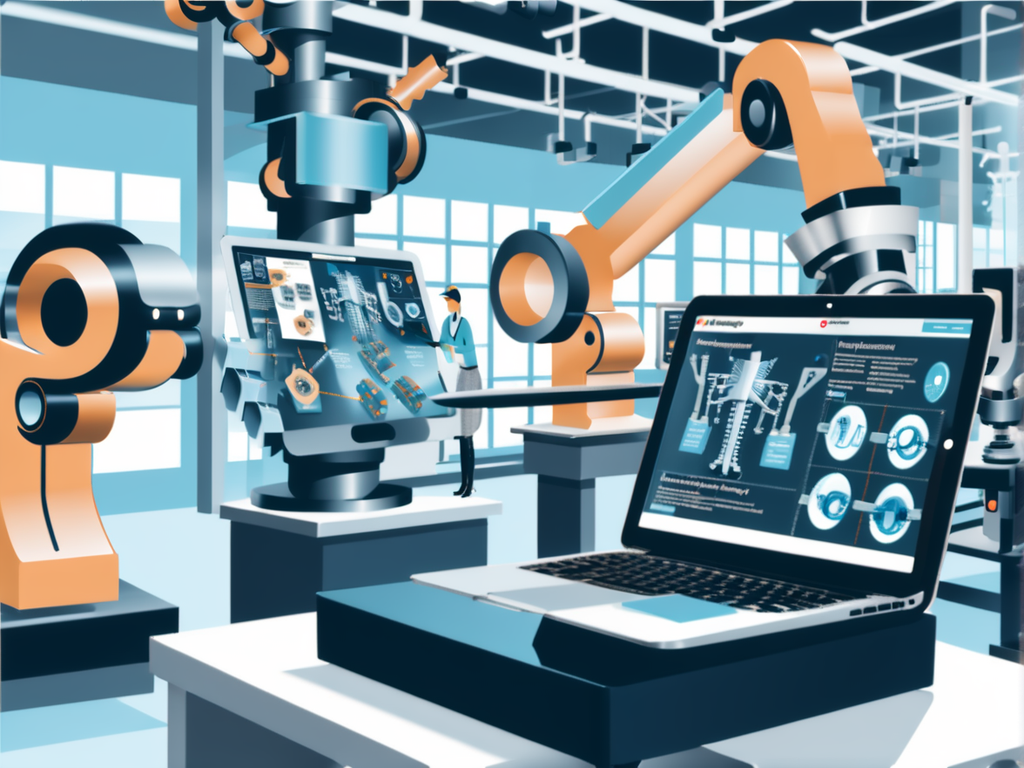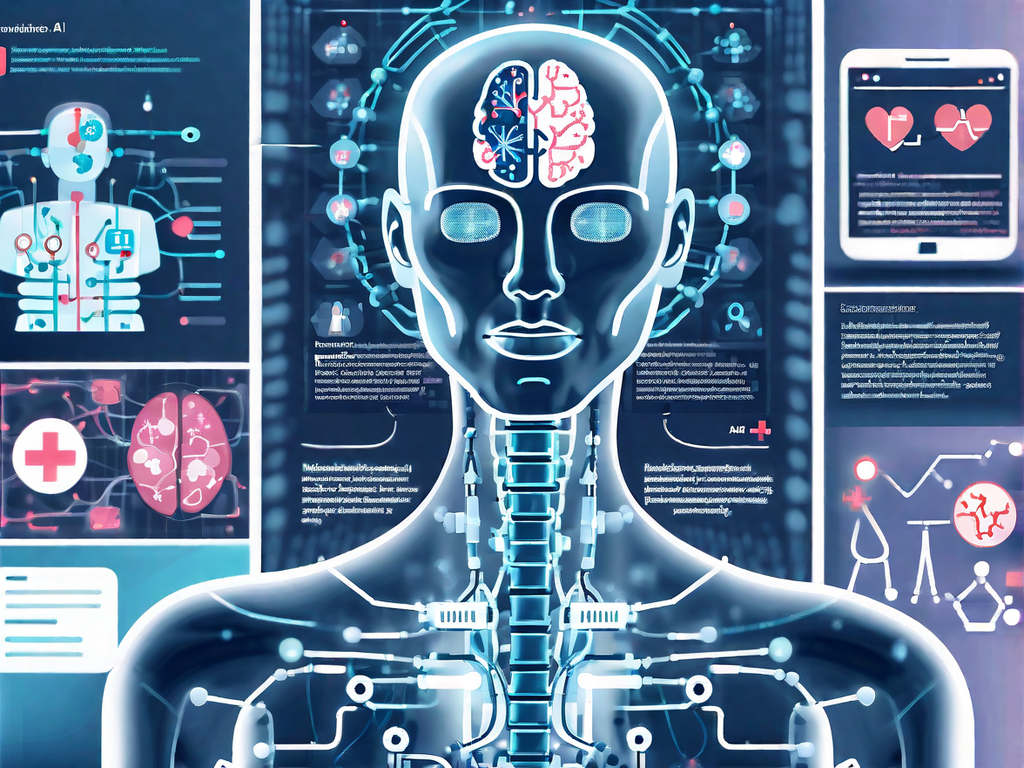The future of quantum computing holds exciting possibilities. Quantum computing’s combination with artificial intelligence opens up new avenues for breakthroughs in machine learning and data analysis. These powerful technologies complement each other, offering the potential to transform various fields, from healthcare and finance to logistics and materials science.
Quantum computers have the potential to tackle complex problems that have long stumped classical computers. From advancing cryptography and accelerating drug discovery to optimizing complex systems and improving weather forecasting, the power of quantum computing is undeniable.
However, there are challenges to overcome. Quantum decoherence, the loss of quantum information, poses a significant hurdle that researchers are actively working to address. Error correction techniques and the development of reliable and scalable quantum systems are crucial to harnessing the full potential of quantum computing.
Real-world applications of quantum computing are already underway. Industries such as finance, healthcare, logistics, and materials science are exploring the practical applications of quantum algorithms and hardware, solving complex problems more efficiently. These early demonstrations highlight the transformative impact that quantum computing can have on various sectors.
Looking ahead, the future of quantum computing is exceptionally bright. Ongoing research and development efforts, the pursuit of quantum supremacy, and the increasing accessibility of quantum technologies are propelling this field forward. However, it is essential to consider the ethical implications of quantum computing’s advancements and its role in shaping the societies of tomorrow.
In conclusion, quantum computing is poised to revolutionize information processing and unleash new possibilities in a range of industries. The future of quantum computing holds promise, demanding continued research, investment, and collaboration to realize its full potential. Strap in for an exciting journey into the quantum realm, where the boundaries of what’s possible are pushed beyond our imagination.

Understanding Quantum Computing and AI
In today’s rapidly evolving technological landscape, two frontiers stand out: quantum computing and artificial intelligence (AI). Individually, these fields have already demonstrated groundbreaking capabilities and paved the way for transformative advancements. However, the true potential lies in their intersection, where quantum computing and AI come together to unlock unprecedented possibilities.
Quantum computing harnesses the principles of quantum mechanics to manipulate and process information in ways that defy classical computing’s limitations. By utilizing quantum bits or qubits, which can represent multiple states simultaneously, quantum computers have the potential to solve complex problems that are infeasible for traditional computers.
AI, on the other hand, focuses on developing algorithms and models that enable machines to perform tasks and make decisions traditionally associated with human intelligence. From image recognition to natural language processing, AI has already transformed industries and continues to push the boundaries of what our digital companions can achieve.
“Quantum computing and AI have a natural symbiosis, each reinforcing the other’s potential. Quantum computing has the power to enhance AI algorithms, accelerating their learning processes and enabling more accurate predictions. Similarly, AI can contribute to the development of quantum computing by tackling optimization challenges and improving error correction mechanisms.”
The synergy between quantum computing and AI offers a multitude of benefits across various domains. Perhaps most compelling is the potential for improving machine learning. Quantum computers can facilitate the training of large-scale AI models by exponentially speeding up calculations, reducing training time, and enhancing the model’s accuracy.
Additionally, the combination of quantum computing and AI can lead to significant advancements in data analysis. Quantum algorithms designed for data processing can handle vast amounts of information more efficiently, providing insights and patterns that were previously elusive.
Moreover, quantum-enhanced AI can revolutionize problems of optimization. From supply chain management to financial portfolio optimization, harnessing the power of quantum computing can unlock superior solutions, maximizing efficiency and minimizing costs.
By integrating quantum computing and AI, we are poised to usher in a new era of innovation and discovery. However, it is crucial to continue research and development efforts to overcome technical challenges and ensure the accessibility and reliability of these technologies.

Example Applications
The following table highlights prominent examples of how the synergy between quantum computing and AI is making an impact across industries:
| Industry | Application |
|---|---|
| Healthcare | Drug discovery and personalized medicine |
| Finance | Portfolio optimization and risk analysis |
| Logistics | Route optimization and supply chain management |
| Materials Science | Efficient material design and simulation |
These examples highlight just a fraction of the potential of quantum computing and AI working together. With further research and advancements, we can expect an exponential growth in applications and solutions that leverage the unique strengths of both fields, enabling us to solve some of the most complex challenges of our time.
The Power of Quantum Computing
Quantum computing possesses an immense power that can revolutionize various aspects of our lives. Unlike classical computers, quantum computers have the ability to solve complex problems at an unprecedented speed and efficiency, leading to groundbreaking advancements in numerous fields. The future of quantum computing holds remarkable potential, with applications that can make a significant difference in industries such as cryptography, drug discovery, optimization, and weather forecasting.
When it comes to cryptography, quantum computing can disrupt the current encryption methods used to safeguard sensitive information. The computational power of quantum computers can quickly crack encryption algorithms that would take classical computers centuries to decode. This breakthrough poses both challenges and opportunities, as it prompts the need for new encryption techniques that are resistant to quantum attacks.
In the domain of drug discovery, quantum computing can accelerate the process of finding new drugs and significantly improve personalized medicine. Quantum algorithms can simulate molecular interactions and analyze large datasets, allowing researchers to identify potential drug candidates more efficiently. This can lead to the development of groundbreaking treatments for diseases that were once considered incurable.
Optimization is another area where quantum computing can have a transformative impact. Quantum algorithms can solve complex optimization problems, which are prevalent in industries such as logistics, supply chain management, and resource allocation. By providing optimal solutions in a fraction of the time compared to classical computers, quantum computing can revolutionize these sectors and contribute to more efficient and cost-effective operations.
Furthermore, quantum computing can revolutionize weather forecasting by dramatically improving accuracy and lead time for predictions. The complex nature of weather prediction models can be handled more effectively by quantum algorithms, enabling more precise forecasts and better preparedness for severe weather events. This has the potential to save lives and reduce the economic impact of natural disasters.
Quantum computing has the power to transform our world in unimaginable ways. Its immense computational capabilities can unlock new possibilities and solve problems that were once considered insurmountable. From revolutionizing encryption and drug discovery to optimizing complex systems and improving weather forecasting, quantum computing opens the door to a future where advanced computation becomes a reality.
| Industry/Application | Potential Impact |
|---|---|
| Cryptography | Revolutionize encryption methods and enhance data security |
| Drug Discovery | Accelerate the development of new drugs and personalized medicine |
| Optimization | Optimize complex systems and improve efficiency in logistics, supply chain management, and resource allocation |
| Weather Forecasting | Enhance the accuracy and lead time of weather predictions for better preparedness |
Overcoming Challenges in Quantum Computing
To fully unlock the potential of quantum computing, there are several challenges that scientists and researchers need to overcome. One of the key obstacles is quantum decoherence, which refers to the loss of quantum information due to interactions with the surrounding environment.
Quantum systems are extremely sensitive to noise and disturbances, making it crucial to find ways to control and mitigate decoherence. Addressing this challenge is essential for ensuring the reliability and stability of quantum computers.
Another major challenge in quantum computing is error correction. Quantum bits, or qubits, are prone to errors caused by various factors such as noise and imperfections in the hardware. Error correction techniques are crucial for preserving the accuracy of calculations and preventing the accumulation of errors.
“Quantum computing is still in its infancy, and we are actively working on overcoming these challenges,” says Dr. Katherine Johnson, a quantum physicist at QuantumTech Research Institute. “Developing robust error correction methods and finding ways to prolong quantum coherence are critical for building practical and scalable quantum computers.”
“Quantum decoherence and error correction are like two sides of the same coin,” explains Dr. David Chen, a quantum computing expert at Quantum Insights. “By tackling these challenges simultaneously, we can pave the way for the future of quantum computing and unlock its full potential in solving complex problems.”
Researchers and scientists are actively exploring various strategies to overcome these challenges. They are investigating new materials and technologies that can prolong the coherence time of qubits. Additionally, advancements in error correction codes and fault-tolerant designs are being developed to enhance the reliability of quantum systems.
By overcoming these challenges, the future of quantum computing holds incredible promise. It has the potential to revolutionize industries, from finance and healthcare to optimization and cryptography. The development of reliable and scalable quantum computers will unlock new possibilities in information processing and problem-solving.
Quantum Computing in Action
Quantum computing is not just a theoretical concept; it is already making a significant impact in various industries and research fields. Let’s explore some specific examples of how quantum computing is being used and its potential for solving complex problems.
Finance:
In the finance industry, quantum computing has the potential to revolutionize portfolio optimization, risk analysis, and algorithmic trading. By leveraging the unique properties of quantum systems, financial institutions can explore a vast number of potential investment scenarios simultaneously, leading to more informed decision-making and improved profitability.
Healthcare:
Quantum computing holds great promise for healthcare, where it can accelerate drug discovery and molecular modeling. Traditional methods of simulating chemical reactions and testing potential drug candidates are time-consuming and resource-intensive. Quantum computers can simulate molecular interactions accurately and efficiently, enabling researchers to identify new drug targets and develop treatments faster.
Logistics:
The logistics industry stands to benefit from quantum computing’s ability to optimize complex supply chains and route planning. Quantum algorithms can efficiently solve problems related to vehicle routing, scheduling, and inventory management, leading to reduced costs, increased efficiency, and improved delivery times.
Materials Science:
Quantum computing is transforming materials science by revolutionizing the design and development of new materials with unique properties. Researchers can harness the power of quantum simulations to understand the behavior of materials at a fundamental level, leading to the discovery of more efficient catalysts, stronger alloys, and advanced electronic devices.
Quantum computing is not only enhancing existing processes but also unlocking new possibilities across various industries. Its impact on fields like finance, healthcare, logistics, and materials science is just the beginning of a transformative journey.
The Future of Quantum Computing
In the world of technology, quantum computing is paving the way for a revolutionary transformation. As we continue to unlock the immense potential of quantum computers, the future holds exciting possibilities that can reshape our lives in ways we can only imagine.
Ongoing research and development efforts are focused on achieving quantum supremacy – the ability of a quantum computer to solve problems that are practically infeasible for classical computers. This race to push the boundaries of quantum computing is driving innovation and inspiring breakthroughs.
Moreover, quantum technologies are becoming increasingly accessible and available to a wider audience. What was once limited to researchers and experts is now permeating various fields and industries, opening up new opportunities for exploration and discovery.
However, with great power comes great responsibility. As quantum computing advances, it introduces new ethical considerations that need to be addressed. The potential for quantum computers to break encryption algorithms poses challenges in ensuring data security and privacy.
Beyond the technical aspects, quantum computing also has the potential to shape future societies. The profound impact it can have on industries such as finance, healthcare, logistics, and materials science promises transformative changes that can improve efficiency, accelerate scientific advancements, and redefine our understanding of the world.
The future of quantum computing is not just about building faster and more powerful computers. It is about harnessing the capabilities of this disruptive technology to solve complex problems, revolutionize information processing, and push the boundaries of human knowledge.
As we embark on this journey into the quantum realm, it is crucial to stay connected, curious, and prepared for the incredible possibilities that lie ahead. The future of quantum computing is a future of boundless potential.


































